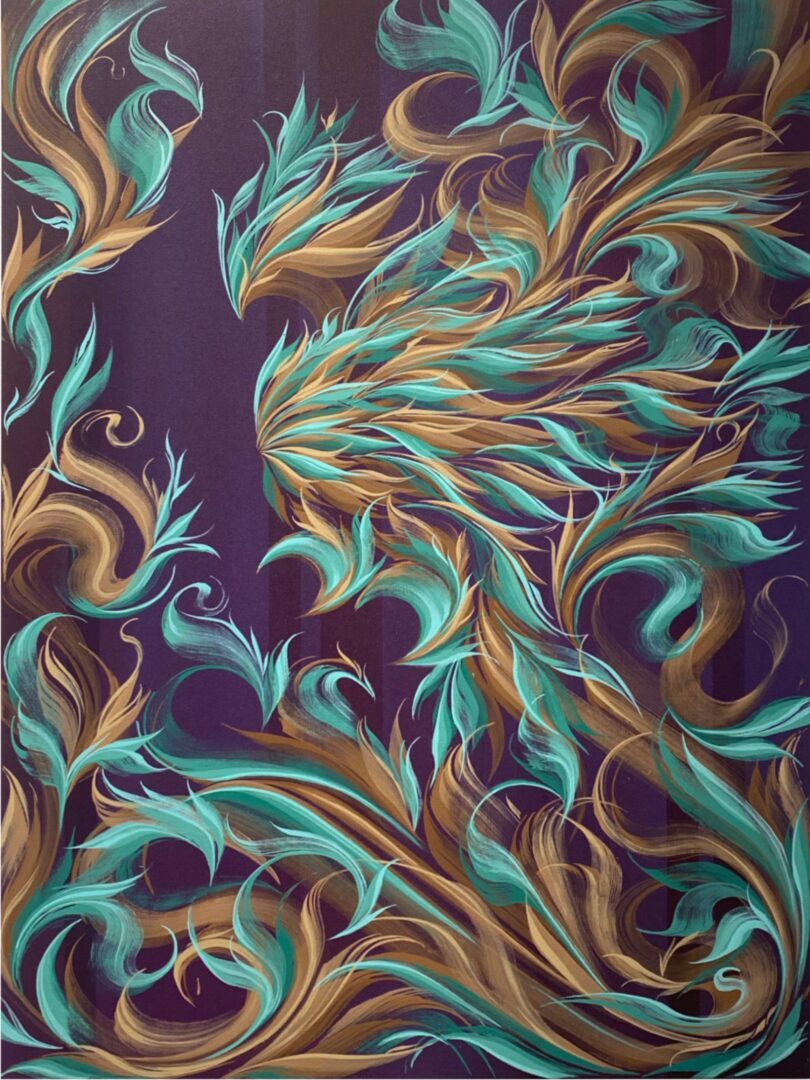We were lucky to catch up with Thitiwat recently and have shared our conversation below.
Thitiwat, thanks so much for taking the time to share your insights and lessons with us today. We’re particularly interested in hearing about how you became such a resilient person. Where do you get your resilience from?
Resilience and work ethic are both so closely tied together for me I will have to answer two panel questions with my response. Work ethic has to do with how much pride you have in whatever craft it is you are pursuing. It refers to the dedication, the commitment to excellence. I think having resiliency is a byproduct of having exceptional work ethic.
Resilience inherently comes with obstacles, setbacks, some kind of negative outside force acting against your purpose. This force can become so powerful that it clouds judgment, destroys relationships, leads to depression and anxiety–ultimately a downward spiral. As I’ve gotten older and experienced various situations I’ve come to the conclusion that these are waves you have to just ride out. Growing up in a Buddhist household also informs my manner of approaching obstacles. The cyclical nature of reincarnation lends itself to the transient nature of these hardships. The good times don’t last forever in the same way that these bad times will also not last forever. I have these mantras that I keep in mind that help me remain in the present and motivate me to continue. This particular situation reminds me of one that goes “if you feel like you’re walking through hell–keep walking.” These mantras can be from songs, movies, from people I’ve met, or books I’ve read. The ones that stick with me the most are quotes from Kobe Bryant. He has had a transcendent influence on my life. I still tear up sometimes when i think about him. The way he approaches everything with 100% mindfulness and purpose is something I wish to emulate—“Interested people watch obsessed people change the world.” As for my work ethic, whenever I start to feel lazy or burnt out I will try to keep in mind “they may have more luck, they may have more skill, but I will work harder.” And my absolute favorite is “when your motivation runs low–your discipline takes over.”
Ultimately, both my resilience and work ethic stem from my parents. They immigrated to the U.S. from Thailand and raised my brother and I in a suburban neighborhood in southern California. They told us stories of their youth in Thailand, of the struggles they endured as students and coming to a new country, the struggles of becoming business owners, the societal and familial pressures, the racism and classism they experienced. At one point our family business which was an aquarium fish store, burnt down to the ground from an electrical fire. My parents lost everything but they faced the adversity and built it back up from scratch. All of these stories and experiences, some of which I experienced first hand and some through my parents, all provided me with the foundation of how I approach resilience.
My mom grew up in the countryside of Thailand living by lantern light, no electricity. She walked miles to go to school, helped out with the family farmland, caught fireflies for fun. She sold little desserts my grandma made and saved money with her siblings for multiple days so they could buy one bottle of coca-cola to share. My mom was (and still is at times) a political activist in college, going to marches and protests. My bedtime stories were tales of riots, tear gas, high pressure water hose, even some of her friends being shot or disappeared. So the struggle of the people runs through me. Fighting for what is right, fighting for the whole instead of the profit of a few are values that have always been championed in my house.
When my parents came to the U.S. for school my mom worked as a waitress and my dad worked in the kitchen as a cook at a diner in Texas. It is a humble origin story for them. They moved to California after they finished school and helped my uncle with his fish store business until they saved up enough money to buy their own shop. Growing up, I do not remember a single day my father did not go to work. Even on holidays he would go for a few hours to do minor chores like taking out the dead fish from the tanks, mixing the salt water, feeding fish, etc. I grew up in that fish store, playing Nintendo in the back with my brother while he and my mom worked. On their wedding day, they got married and then went to the fish store because it was during a time they had just opened and had so much to do. When the store burned down, it was the first time in my life I saw a look of fear in my father’s eyes. He had to start over again with a smaller shop but eventually built himself back up through honest work and the loyalty of his customers.
There are countless instances where a customer would come into the shop and say his their parents brought him them into the shop as a little kid and would get yelled at for banging on the fish tanks and now they are bringing in his their own kids and tells them not to bang on the tanks. My brother also works at the store now so my father will take one or two days off per week. He is a workaholic. Now that I am an adult I understand why he is so dedicated. It reminds me of a documentary called “Jiro Dreams of Sushi.” Jiro has been making sushi for 70 years and hates taking days off even though he’s like 80 something. There is a relentless pride, a comfort in knowing you are giving this life everything you have. On the phone, my mom always asks “when are you going to visit” and my dad would says “if you have time off work.”
No matter what I am going through in life I can just think back to the struggles my parents have had to endure and I immediately snap back from a “victim” mindset to an “actively trying to solve this problem” mindset. I don’t want to let them down, and I don’t want to let myself down.
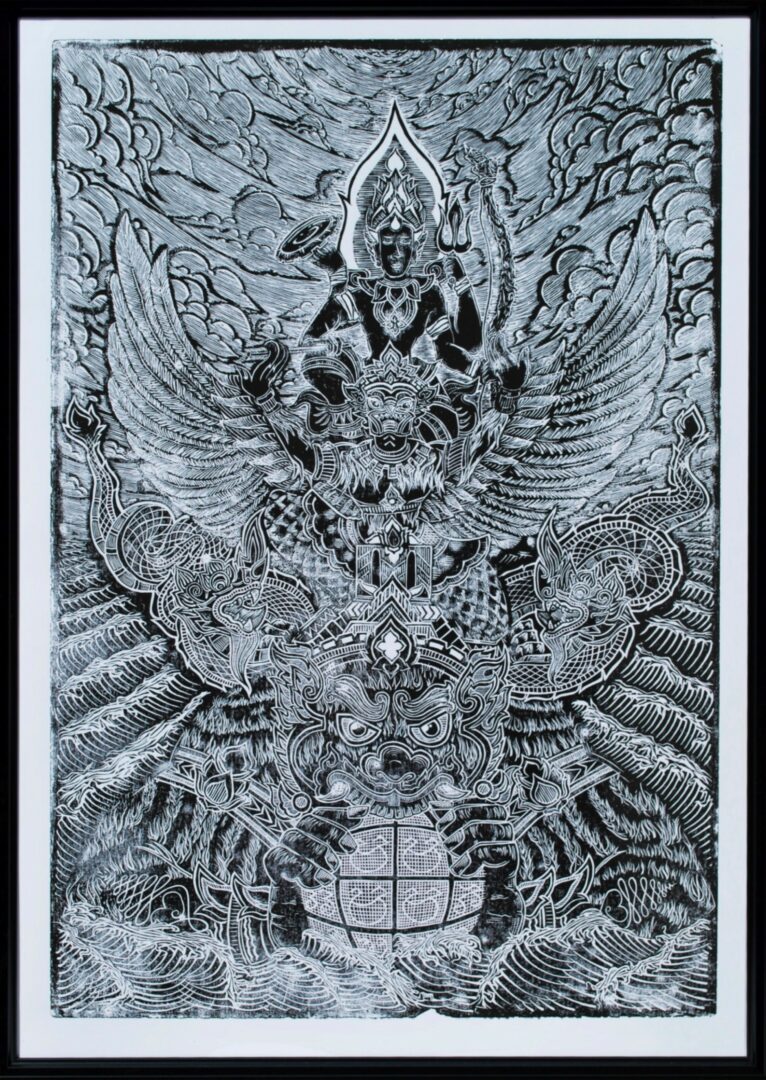
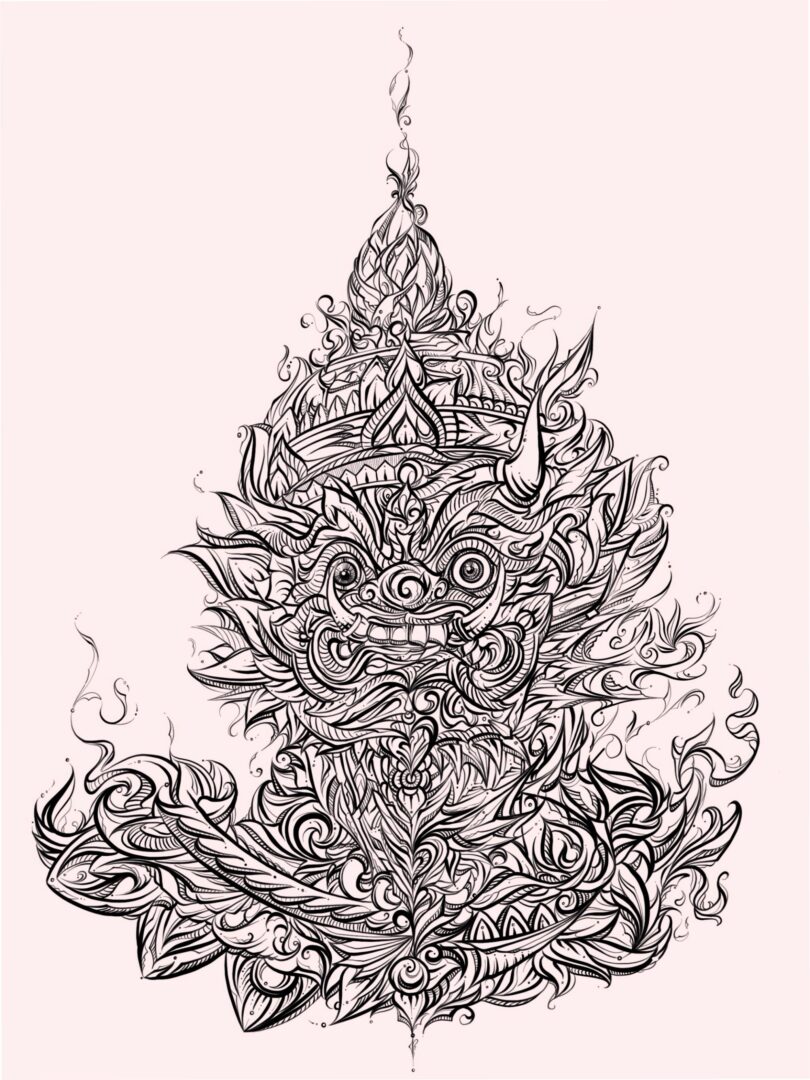
Appreciate the insights and wisdom. Before we dig deeper and ask you about the skills that matter and more, maybe you can tell our readers about yourself?
I’m just an artist trying to do as much art as possible while still making enough money to maintain some kind of comfortable standard of living. My main focus would have to be painting murals and canvases whenever possible. It’s pretty difficult to sustain life through just painting alone. This is due to a number of factors. Sometimes it takes a while to get the business owner’s approval, then the property owner’s approval, a design has to be agreed upon. There are also logistical issues such as equipment and materials, scaffolding or lift rentals, if the wall is big then you would need a team, availability of said team. Before we even get to put paint to surface there has to be many checkpoints. When a project comes together it’s all worth it. You have a direct influence on your surrounding and for the most part—the people love it. You get to see the progress at the end of every day and feeling exhausted is a good thing. There is also a sense of camaraderie with those you paint with.
In between these painting projects and art shows I supplement my income by working for the San Francisco Arts Commission. They have a gallery in the Veteran’s War Memorial Building and there are about 4 or 5 shows per year. I would do the art de-installation of the previous show and the installation for the next show. This usually takes about 3 weeks to a month. We also maintain the photo gallery in City Hall that changes 2 or 3 times per year. This experience has been so beneficial for my art practice and perspective. I get to see all different types of art and artists—how they prepare for the show, the craftsmanship(or lack of), how a “white box” show is supposed to be done. The knowledge of hanging artwork properly is a skillset I can use for the rest of my career. I’m so surprised by the number of artists that don’t know how to handle and install their own work. I also do art handling and installations for private contractors, corporate offices, and various galleries.
My favorite part about this lifestyle is all those connections that are made and the surprises along the way. I’ve had the honor of working with a legend like Emory Douglas, the Minister of Culture for the Black Panther Party. I’ve been lucky enough to travel for the sole purpose of painting. You find out there are very few degrees of separation between people in the same field. People know each other or know of each other—especially with mural painting because your business card is on a big wall. There’s intricacies that are hard to explain. Some examples might include: the lineage of painters you follow whether by style or material, graffiti vs. commissioned work, community inclusiveness and participation, work centered around social justice and activism, pushing a brand or name, painting with a crew or solo. Everyone paints for a different reason but no matter who you come across in this realm there is a common understanding, a shared struggle. Many of us share similar stories: falling off a ladder, buckets of paint spilling in your car, dealing with the elements while painting, and client drama. There is a so-called unwritten rule of taking care of visiting artists where one would take them to a spot to paint, we would eat and drink together, and when we visit them in their motherland we would get the same treatment.
I paint with two crews: Trust Your Struggle(TYS) and Los Pores Artistas(LPA), both crews that do a lot of work in the community, champion the people, all around good human beings. TYS started in Berkeley, CA as an activism crew with members specializing in various mediums including film making, printmaking, sign painting, photography, illustrations, murals, community organizing. We are visual translators. We create artwork that tells stories of revolutionary movements, honoring the communities and individuals that drive them. Our purpose is to use art to defend, disrupt, transform, and inspire. We champion education through mentorship and collaboration. LPA is a collective and friend group based out of Oakland, CA. Our strong practice in muralism and community-oriented work honors creativity and the power of change, and strives to break down borders and unite people through art.
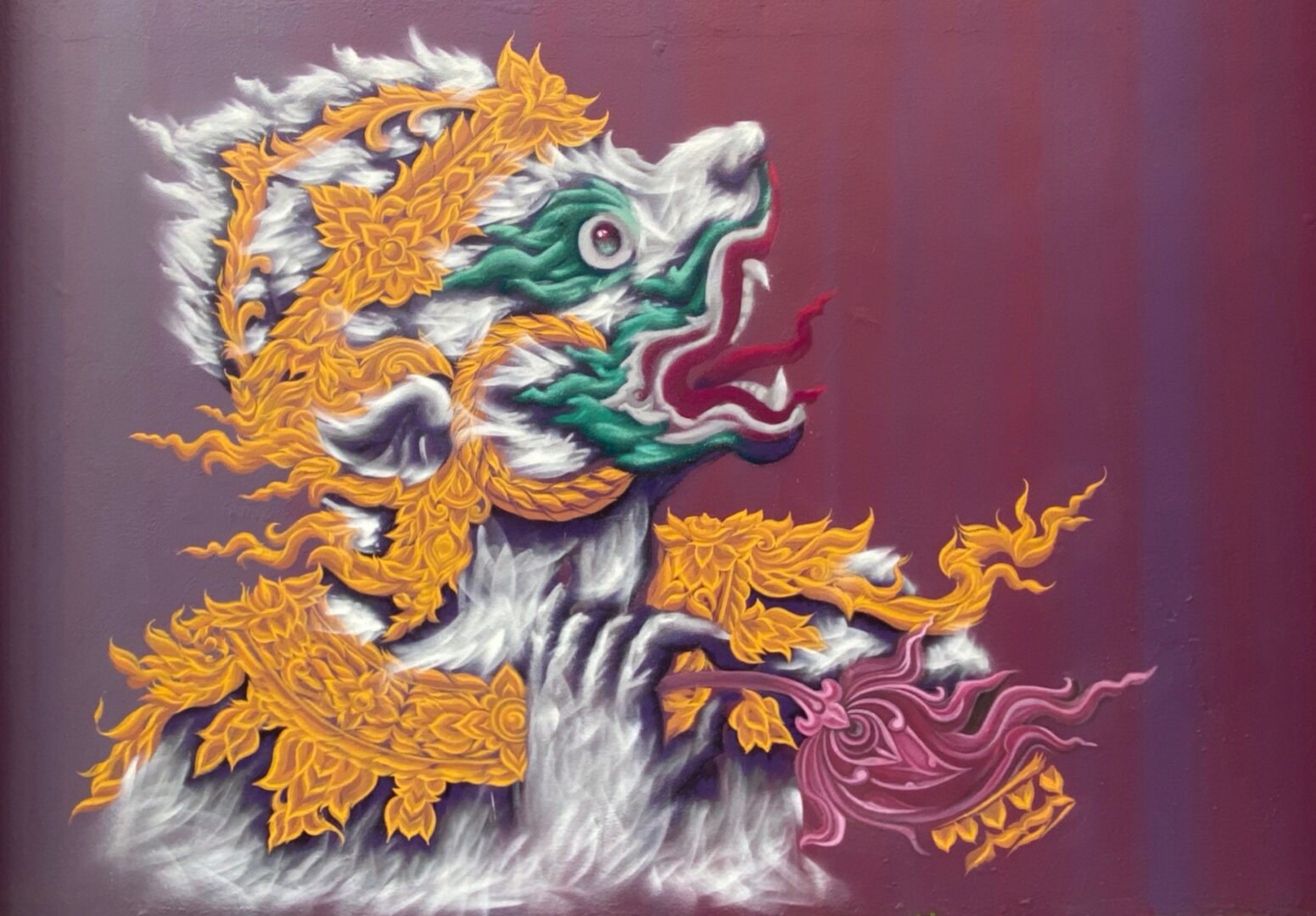
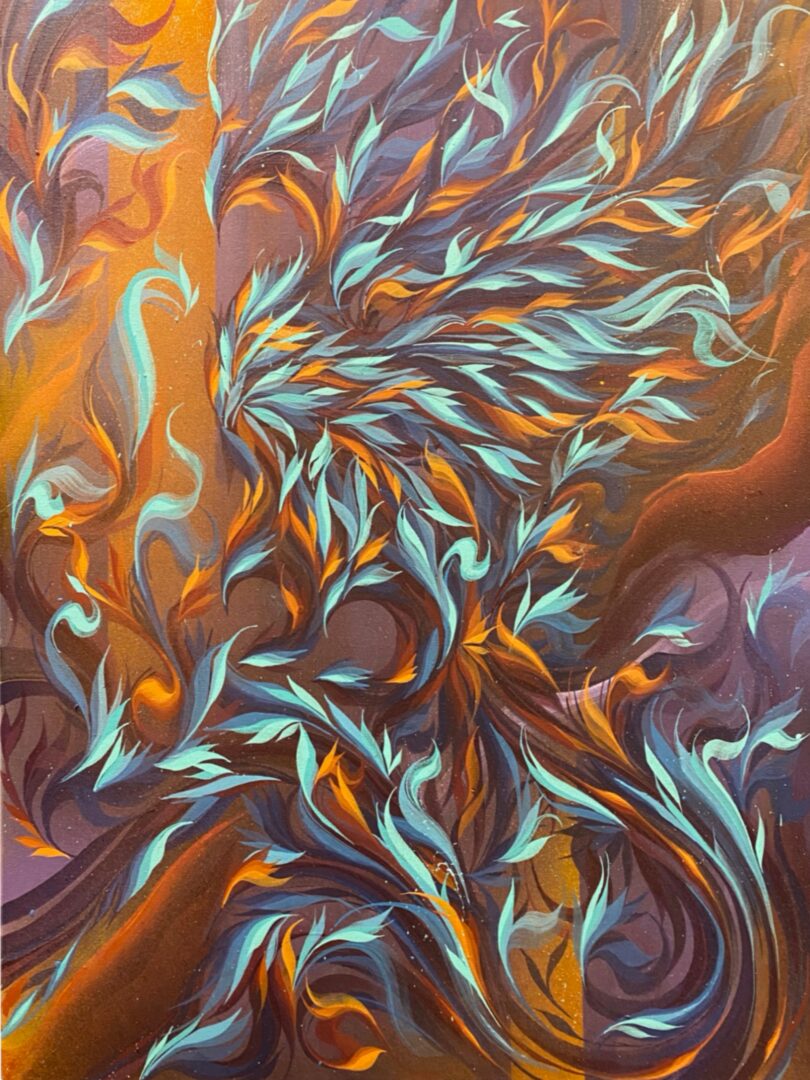
There is so much advice out there about all the different skills and qualities folks need to develop in order to succeed in today’s highly competitive environment and often it can feel overwhelming. So, if we had to break it down to just the three that matter most, which three skills or qualities would you focus on?
First would be to keep your head down and stay dedicated to the work, loyal to the craft, enjoy the process. Don’t compare yourself to another person. Compare yourself to who you were in the past. People around you with less skill and put in less work will get lucky sometimes but that has nothing to do with you. There are going to be many times that doubt will creep in. Use that darkness to propel you further–prove the voice of doubt in the back of your mind wrong. If you are harsher on yourself than anyone else–then nothing anyone says can affect you. There will be sleepless nights filled with doubt and anxiety but there will also be nights where the highs are breathtaking, the planets align, and you know in your soul–you were put on Earth to do this thing.
Second, find something physical that you can use to balance the obsession with your craft. Often times if I paint and that’s all I do, my paintings start to feel dull and forced. Certain parts of my body will ache. I know that I have to go out and play basketball. There is a little hit of dopamine when I make a basket. My focus is on footwork or dribble timing or hand placement on a shot. My “art mind” gets a rest and the motor skills get to working. Finding that balance between the “office” in my mind and getting to “play” is absolutely vital to my craft but also helps my body maintain good health.
Lastly, no matter what field you are pursuing, what craft you can’t help but obsess over—find a good mentor and work closely with them. One that you admire, respect, believe in, trust to have your best interests in mind, and would go to war for. The experiences, lessons and loopholes, highlights and lowlights of their career are all so valuable. Anytime you have a question about how to handle different situations—you will have someone to go to and ask. A person who can give you advice from real life experiences is past all the glitz and glamour and smoke and mirrors. They’ve had time to process and live out time spent between various milestones. It’s a window into how things could be and where to avoid pitfalls and emulate the successes. This should also be a lifelong relationship so finding someone you enjoy spending time with would be a good idea. And if possible, find more than one mentor—more experiences means more perspectives.
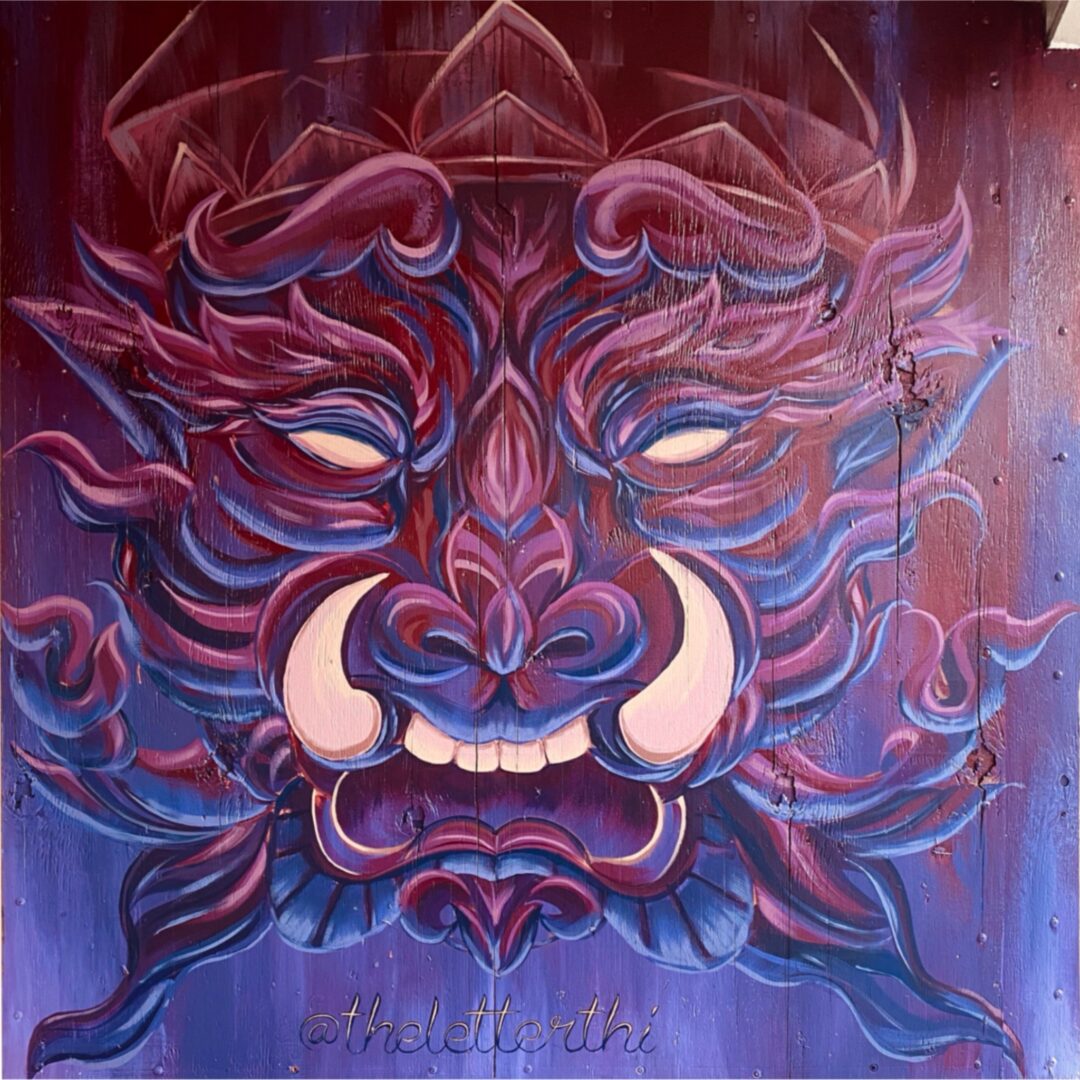
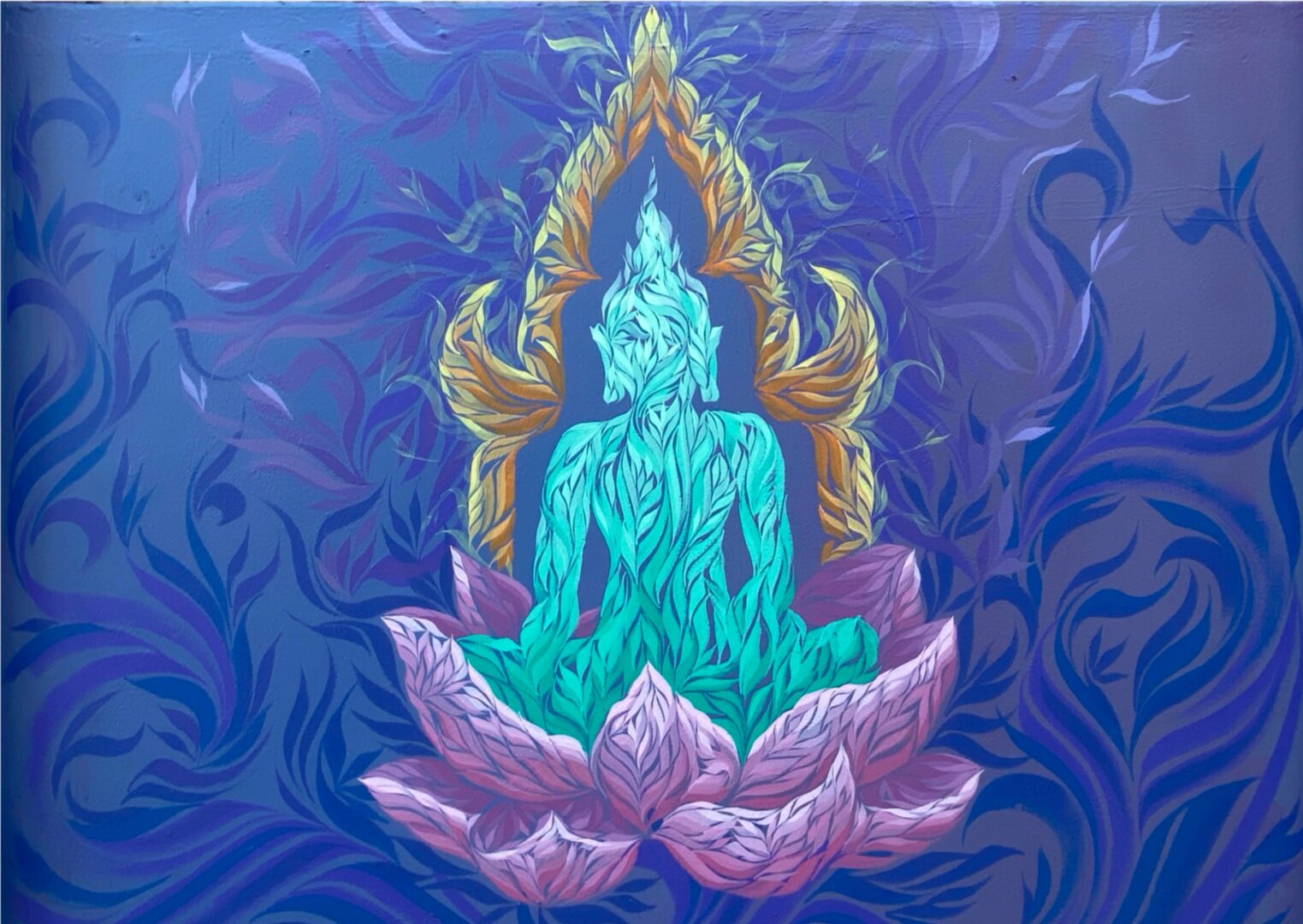
If you knew you only had a decade of life left, how would you spend that decade?
I would spend a decade in Thailand. I would paint as many murals and put on as many art shows as humanly possible. Through murals I would try to connect with artists from all over Thailand and the people who would come to visit. There will be an exchange with people from all over the world and hopefully I could travel to their homelands and paint there as well. The opportunity to collaborate with different styles and techniques from various generations of artists from my motherland is undoubtedly something I look forward to the most. It would be painting in paradise. The food would be world class and still affordable. The beaches would be immaculate. There is nightlife in the city, peace in the countryside, and so much culture to soak in. I would try to find some contemporary masters from Thailand to study under or volunteer to work on their projects. I’m actually interested in tattoos as well. Thai and Cambodian people practice a tattoo art form style known as Sak Yant. The designs include sacred geometric patterns, ancient sanskrit script, and various animals and symbols to offer strength, luck and spiritual protection. I want to continue doing what I am currently involved in but also give myself new challenges and mediums to work with.
Contact Info:
- Instagram: @theletterthi
- Other: The two crews I paint with:
Trust Your Struggle
https://www.trustyourstruggle.org/
https://www.instagram.com/trustyourstruggleLos Pobres Artistas
https://www.instagram.com/lospobresartistas


Image Credits
Trust Your Struggle
Los Pobres Artistas
so if you or someone you know deserves recognition please let us know here.

